BMW X1 vs Jeep Wrangler – Which model is better for everyday use?
Both models have their strengths – but which one suits you more?
Compare performance, efficiency, price and space directly: BMW X1 or Jeep Wrangler?
Costs and Efficiency:
When it comes to price and running costs, the biggest differences usually appear. This is often where you see which car fits your budget better in the long run.
BMW X1 has a significantly advantage in terms of price – it starts at 38200 £, while the Jeep Wrangler costs 69900 £. That’s a price difference of around 31629 £.
Fuel consumption also shows a difference: BMW X1 manages with 0.80 L and is therefore convincingly more efficient than the Jeep Wrangler with 3.30 L. The difference is about 2.50 L per 100 km.
As for range, the BMW X1 performs decisively better – achieving up to 83 km, about 41 km more than the Jeep Wrangler.
Engine and Performance:
Under the bonnet, it becomes clear which model is tuned for sportiness and which one takes the lead when you hit the accelerator.
When it comes to engine power, the Jeep Wrangler has a a bit edge – offering 380 HP compared to 326 HP. That’s roughly 54 HP more horsepower.
In acceleration from 0 to 100 km/h, the BMW X1 is evident quicker – completing the sprint in 5.40 s, while the Jeep Wrangler takes 6.50 s. That’s about 1.10 s faster.
In terms of top speed, the BMW X1 performs evident better – reaching 250 km/h, while the Jeep Wrangler tops out at 177 km/h. The difference is around 73 km/h.
There’s also a difference in torque: Jeep Wrangler pulls evident stronger with 637 Nm compared to 477 Nm. That’s about 160 Nm difference.
Space and Everyday Use:
Cabin size, boot volume and payload all play a role in everyday practicality. Here, comfort and flexibility make the difference.
Both vehicles offer seating for 5 people.
In curb weight, BMW X1 is convincingly lighter – 1575 kg compared to 2276 kg. The difference is around 701 kg.
In terms of boot space, the BMW X1 offers slight more room – 540 L compared to 533 L. That’s a difference of about 7 L.
In maximum load capacity, the Jeep Wrangler performs noticeable better – up to 2050 L, which is about 450 L more than the BMW X1.
When it comes to payload, Jeep Wrangler slight takes the win – 536 kg compared to 500 kg. That’s a difference of about 36 kg.
Who wins the race?
The BMW X1 proves to be is largely superior and therefore becomes our DriveDuel Champion!
BMW X1 is the better all-rounder in this comparison.
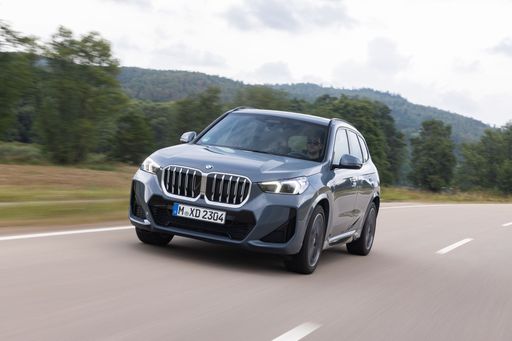
BMW X1
BMW X1
The new BMW X1 effortlessly blends sporty elegance with practical functionality, making it a standout choice in the compact SUV segment. Inside, the sophisticated cabin design is complemented by high-quality materials and cutting-edge technology, creating a welcoming and advanced driving environment. On the road, the vehicle's agile handling and responsive performance promise an engaging driving experience, whether navigating urban streets or embarking on longer journeys.
details @ press.bmwgroup.com
@ press.bmwgroup.com
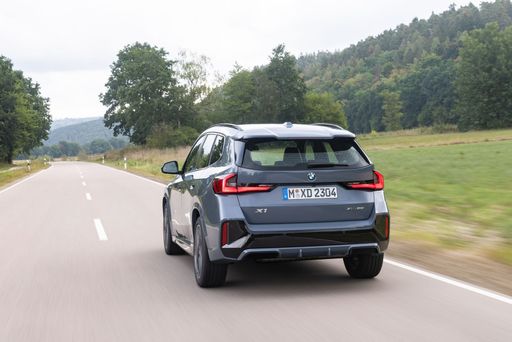 @ press.bmwgroup.com
@ press.bmwgroup.com
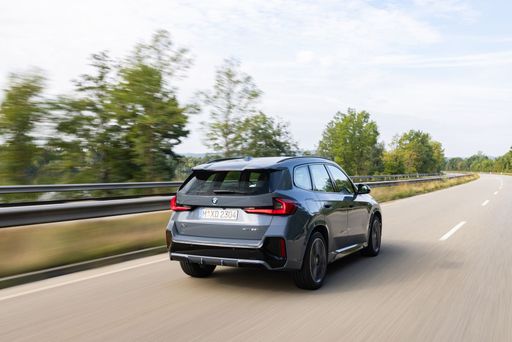 @ press.bmwgroup.com
@ press.bmwgroup.com
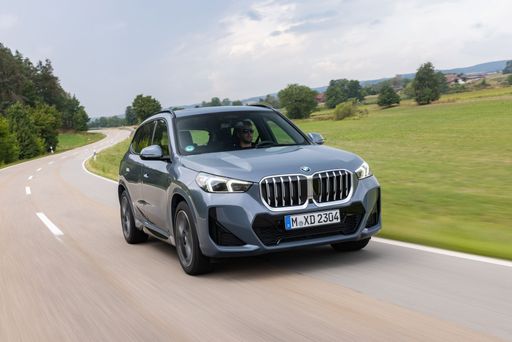 @ press.bmwgroup.com
@ press.bmwgroup.com
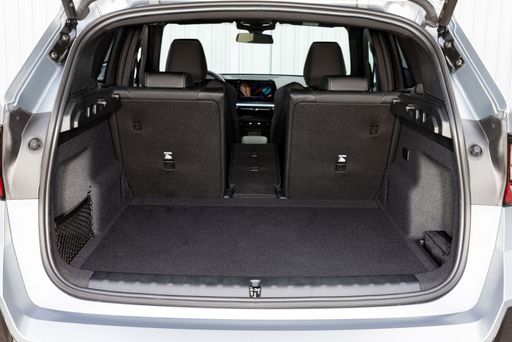 @ press.bmwgroup.com
@ press.bmwgroup.com
Jeep Wrangler
The Jeep Wrangler is a symbol of rugged adventure and off-road capability, renowned for its distinctive boxy design and iconic seven-slot grille. Its interior blends practicality with modern technology, providing a comfortable environment whether you're navigating city streets or challenging terrains. With a loyal fan base, the Wrangler continues to capture the spirit of freedom and exploration, making it a favourite among outdoor enthusiasts.
details @ media.stellantis.com
@ media.stellantis.com
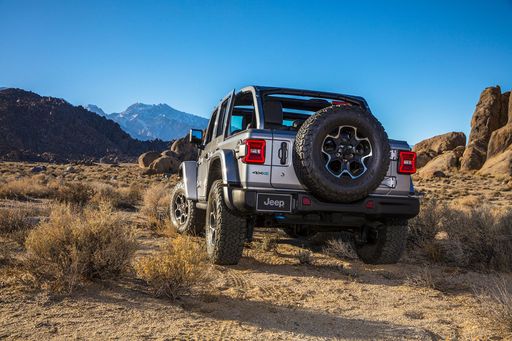 @ media.stellantis.com
@ media.stellantis.com
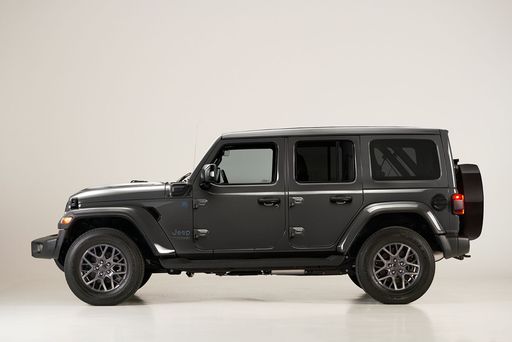 @ media.stellantis.com
@ media.stellantis.com
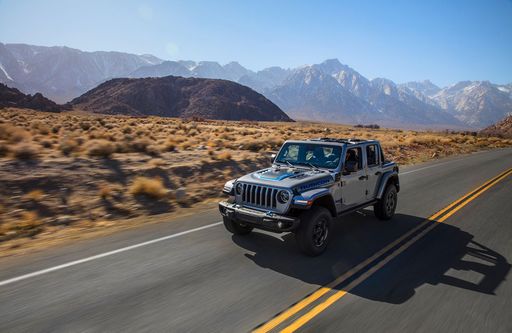 @ media.stellantis.com
@ media.stellantis.com
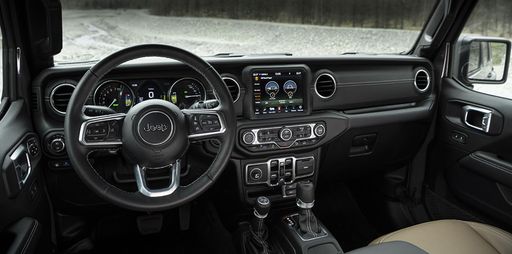 @ media.stellantis.com
@ media.stellantis.com

|

|
|
|
|
Costs and Consumption |
|
|---|---|
|
Price
38200 - 55500 £
|
Price
69900 - 71600 £
|
|
Consumption L/100km
0.8 - 7.7 L
|
Consumption L/100km
3.3 - 4 L
|
|
Consumption kWh/100km
-
|
Consumption kWh/100km
-
|
|
Electric Range
83 km
|
Electric Range
38 - 42 km
|
|
Battery Capacity
14.20 kWh
|
Battery Capacity
-
|
|
co2
17 - 175 g/km
|
co2
74 - 91 g/km
|
|
Fuel tank capacity
47 - 54 L
|
Fuel tank capacity
65 L
|
Dimensions and Body |
|
|---|---|
|
Body Type
SUV
|
Body Type
Off-Roader
|
|
Seats
5
|
Seats
5
|
|
Doors
5
|
Doors
5
|
|
Curb weight
1575 - 1935 kg
|
Curb weight
2276 - 2383 kg
|
|
Trunk capacity
490 - 540 L
|
Trunk capacity
533 L
|
|
Length
4500 - 4505 mm
|
Length
4882 mm
|
|
Width
1845 mm
|
Width
1894 mm
|
|
Height
1622 - 1642 mm
|
Height
1838 - 1848 mm
|
|
Max trunk capacity
1495 - 1600 L
|
Max trunk capacity
2050 L
|
|
Payload
490 - 500 kg
|
Payload
520 - 536 kg
|
Engine and Performance |
|
|---|---|
|
Engine Type
Diesel MHEV, Petrol MHEV, Plugin Hybrid, Petrol, Diesel
|
Engine Type
Plugin Hybrid
|
|
Transmission
Automatic
|
Transmission
Automatic
|
|
Transmission Detail
Dual-Clutch Automatic
|
Transmission Detail
Automatic Gearbox
|
|
Drive Type
Front-Wheel Drive, All-Wheel Drive
|
Drive Type
All-Wheel Drive
|
|
Power HP
136 - 326 HP
|
Power HP
380 HP
|
|
Acceleration 0-100km/h
5.4 - 9.2 s
|
Acceleration 0-100km/h
6.50 s
|
|
Max Speed
190 - 250 km/h
|
Max Speed
156 - 177 km/h
|
|
Torque
230 - 477 Nm
|
Torque
637 Nm
|
|
Number of Cylinders
3 - 4
|
Number of Cylinders
4
|
|
Power kW
100 - 240 kW
|
Power kW
280 kW
|
|
Engine capacity
1499 - 1998 cm3
|
Engine capacity
1995 cm3
|
General |
|
|---|---|
|
Model Year
2023 - 2025
|
Model Year
2024
|
|
CO2 Efficiency Class
D, E, B, F
|
CO2 Efficiency Class
B
|
|
Brand
BMW
|
Brand
Jeep
|
Is the BMW X1 offered with different drivetrains?
The BMW X1 is offered with Front-Wheel Drive or All-Wheel Drive.
The prices and data displayed are estimates based on German list prices and may vary by country. This information is not legally binding.
